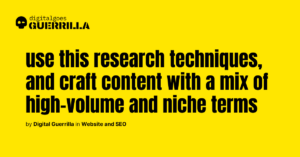Artificial Intelligence (AI) has transformed many aspects of our digital lives, including the way websites are designed and optimized for search engines. For businesses and individuals aiming to stay ahead in the digital race, leveraging AI can significantly boost both website functionality and search visibility. However, many overlook the deeper, more nuanced ways AI can streamline processes and elevate their strategies. This guide dives into advanced applications of AI in website design and SEO, offering actionable insights to make your site a powerhouse of engagement and visibility.
Why AI is Revolutionizing Website Design and SEO
User expectations for personalized experiences and flawless functionality are at an all-time high. Traditional methods of website design and SEO often fall short due to their manual nature and limited adaptability. AI steps in as a game-changer, automating tedious tasks, analyzing massive datasets, and offering real-time optimizations that can transform your digital strategy.
By the end of this article, you’ll understand how to use AI not just as a tool, but as a strategic partner in crafting websites that captivate and rank.
1. Crafting Smarter Designs: How AI Enhances Website UX/UI
AI in Automated Website Builders
AI-powered platforms like Wix leverage machine learning to create visually appealing websites in minutes. These tools analyze your industry, preferences, and goals to generate layouts, color schemes, and even content suggestions tailored to your audience.
Example: An e-commerce brand selling eco-friendly products can use AI to suggest earthy tones, minimalistic design elements, and intuitive navigation that align with the brand’s ethos.
Personalizing User Experiences with AI
AI can help websites deliver hyper-personalized user experiences. Tools like Optimizely and Dynamic Yield analyze user behavior in real-time, dynamically altering page layouts, CTAs, or recommended content based on individual preferences.
Advanced Insight: For SaaS platforms, implementing AI to personalize dashboard layouts or onboarding processes can dramatically increase retention rates.
2. AI-Driven Content Optimization for SEO That Works
Semantic Analysis for Content Relevance
Search engines prioritize content that answers user intent effectively. Tools like Clearscope and MarketMuse use AI to analyze the semantic relationships between keywords and provide actionable suggestions to make your content comprehensive and relevant.
Actionable Tip: Use AI tools to identify gaps in competitor content and build pages that answer questions they’ve overlooked.
Predictive Analytics for Keyword Trends
Platforms like SEMrush and Ahrefs now integrate AI to predict emerging keyword trends. These insights allow you to target high-value search terms before your competitors even notice them.
Case Study: A travel blog utilized AI analytics to predict rising interest in “eco-conscious travel tips,” creating optimized content six months before the topic surged in popularity.
3. AI-Powered Tools for SEO Automation
Streamlining Technical SEO
AI tools such as Deepcrawl and Screaming Frog automate technical SEO audits, identifying broken links, duplicate content, or crawl errors that could impact your rankings.
Step-by-Step Guidance:
- Run an audit using an AI tool.
- Prioritize fixes based on impact and ease of implementation.
- Set up automated monitoring to catch new errors as they occur.
Enhancing On-Page SEO with NLP
Google’s algorithm increasingly relies on Natural Language Processing (NLP). AI tools like Surfer SEO optimize your content for readability and relevance, ensuring it aligns with the nuances of NLP-based ranking factors.
Example: Use Surfer SEO to rewrite meta descriptions and headings that resonate more with user search intent while maintaining readability.
4. Leveraging AI for Advanced Analytics and Reporting
AI’s ability to process large datasets quickly makes it invaluable for SEO reporting and strategy adjustments. Tools like Google Analytics 4 (GA4) and Tableau, augmented with AI integrations, provide predictive insights and behavior analysis.
Emerging Trend: Predictive insights from GA4 can help you anticipate user behavior, such as the likelihood of bouncing or converting, enabling proactive design adjustments. For deeper understanding read how to make the most out of your website analytics.
5. Practical Applications: Real-World Examples of AI in Action
- E-commerce: Amazon employs AI for A/B testing and SEO recommendations, ensuring its product pages are always optimized for both users and search engines.
- Content Platforms: Medium uses AI to suggest topic ideas and SEO enhancements for writers, boosting both engagement and search visibility.
- Local Businesses: Small businesses leverage AI tools like BrightLocal to optimize their Google My Business profiles and generate more local traffic.
FAQs About AI in Website Design and SEO
How does AI help in keyword research?
AI identifies high-performing, long-tail keywords by analyzing search intent and historical data, providing suggestions you might not uncover manually.
Are AI-generated designs customizable?
Yes, AI-generated website designs can be further refined to meet your specific branding and functionality requirements.
Can AI replace human SEO experts?
No, but it can significantly augment their capabilities by automating repetitive tasks and offering data-driven insights.
Conclusion: Start Harnessing AI for Smarter Design and SEO
AI has moved beyond being a buzzword—it’s a cornerstone for digital success. By integrating AI into your website design and SEO strategies, you can create a seamless user experience, optimize your content for search engines, and gain a competitive edge in your industry.
Learn more about Website and SEO 🔽
- How to organize SEO workflow and what tools to use?
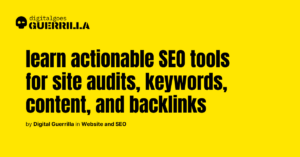
- How to plan categories and tags on wordpress based blog?
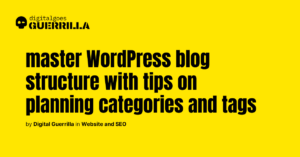
- Why Structured Data Markup (Schema.org) Matters for Your Website?
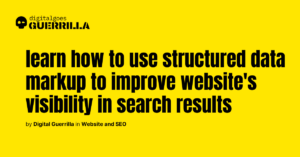
- What Are Canonical Tags? Why Do They Matter for Your SEO?
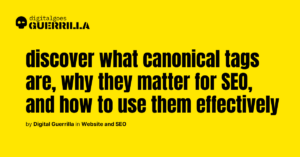
- What is Keyword Difficulty?
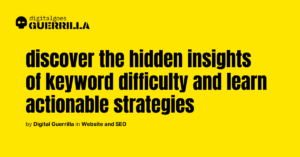
- How to balance keywords search volume and relevance to your content?
